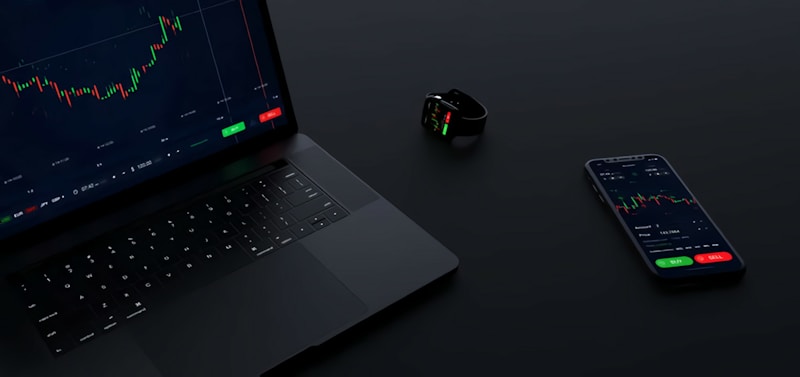Here's the thing nobody tells you: TurboTax was fine for crypto taxes back when you just bought Bitcoin on Coinbase and hodled like a normal person. But the second you start doing actual crypto shit - DeFi, multiple exchanges, yield farming - TurboTax becomes a fucking liability that will destroy your taxes.
The new 1099-DA reporting starting 2025 makes this worse. Exchanges now snitch on you directly to the IRS, so if your tax software calculates the wrong cost basis, you're not just dealing with a confused accountant - you're dealing with automated IRS audits.
TurboTax Crypto: Good Enough Until It Isn't
TurboTax Deluxe costs $79 and handles basic crypto taxes fine. It connects to Coinbase, Kraken, and Gemini without breaking, uses FIFO cost basis by default (which the IRS likes), and doesn't make you learn a whole new platform.

TurboTax works great when you:
- Only trade on major US exchanges
- Buy, hold, maybe sell occasionally
- Use their regular tax software already
- Want actual human support during tax season
- Don't want to export/import between platforms
TurboTax will ruin your life if you:
- Touch any DeFi protocol (it thinks LP tokens are sales - hello $50k phantom gains)
- Trade on international exchanges
- Want to see your portfolio value outside tax season
- Live anywhere but the US
- Do anything more complex than buy/sell/hold
The brutal truth: if you've ever provided liquidity, farmed yield, or bridged tokens, TurboTax will calculate your taxes wrong. I learned this when it counted my Uniswap LP token deposits as $30k in taxable sales. Took three months to unfuck that mess with the IRS.
CoinTracker: Expensive But It Actually Works for Complex Cases
CoinTracker costs $199/year and actually justifies the price if you're a serious trader. It's the closest thing to a Bloomberg terminal for crypto - real-time portfolio tracking, profit/loss analytics, and APIs that connect to pretty much every exchange that matters.
What CoinTracker does well:
- Portfolio tracking that actually works in real-time
- Tax-loss harvesting suggestions that can save you thousands
- Handles complex multi-exchange trades without shitting the bed
- API connections to 500+ platforms (though half don't work during high traffic)
- Exports cleanly to TurboTax when you're done
Where CoinTracker breaks down:
- DeFi support is still garbage despite their marketing claims
- APIs fail constantly during tax season (happened to me twice)
- $199 + $79 TurboTax = $278/year just to do your taxes
- Learning curve is steep - interface assumes you're a day trader
- Email support during crunch time? Good fucking luck
The transaction matching is actually pretty damn good though. It correctly handles partial fills, cross-exchange transfers, and complex trading strategies that make other platforms have a meltdown. If you're managing serious money across multiple exchanges, the $278/year might be worth it. If you're just hodling and doing the occasional trade, you're getting ripped off.
Koinly: The Only One That Gets DeFi (Sort Of)
Koinly is your best bet if you've done any DeFi or live outside the US. At $99 for their Hodler plan, it actually understands that minting LP tokens isn't a taxable event, supports 20+ countries' tax laws, and connects to 700+ exchanges including obscure DEXes your other options have never heard of.
Where Koinly shines:
- Only platform that doesn't fuck up basic DeFi transactions
- Works for crypto users outside the US (literally the only option)
- Plans start at $49 - won't bankrupt you
- Connects to basically every exchange and wallet in existence
- Algorithm actually understands yield farming vs trading
The DeFi categorization is genuinely impressive. It correctly identifies liquidity pool deposits, yield farm rewards, governance token claims, and cross-chain bridge transactions. Other platforms see these as mysterious "trades" that create phantom tax liabilities.
Where Koinly will frustrate you:
- Setup takes forever - you need to manually categorize half your transactions initially
- UI designed by people who assume you speak fluent crypto
- You still need TurboTax or another platform to actually file
- Support is slow during tax season when you actually need help
- Despite 700+ integrations, APIs still break when you need them most
Why 2025 Changes Everything (And Not in a Good Way)
The IRS is getting serious. Starting 2025, exchanges send them 1099-DA forms with your trading data. This isn't some future threat - it's happening now.
Here's what this means for your crypto taxes:
Your cost basis better be fucking accurate. When the IRS computers see you sold $50k of ETH but your tax software shows zero cost basis (because it couldn't track your DeFi mess), they assume $50k in pure profit. Enjoy that audit.
Simple tracking doesn't cut it anymore. If you've been yield farming and have 500 micro-transactions from Compound rewards, you need software that can actually handle that volume without breaking.
International users are especially screwed. As more countries crack down, platforms that only work in the US become useless fast.
The days of "good enough" crypto tax reporting are over. Pick the wrong tool now and you'll spend next year fixing expensive mistakes.
Pick Your Poison: Which Nightmare Fits Your Situation
Stick with TurboTax if: You only use Coinbase/Kraken, buy and hold mostly, and want everything in one place. At $79 total, it's the cheapest option and won't turn simple trades into rocket science.
Upgrade to CoinTracker if: You're actively trading across multiple exchanges, making decent profits, and need real-time portfolio tracking. The $278/year hurts but the analytics can save you thousands in tax-loss harvesting.
Go with Koinly if: You've touched DeFi even once, live outside the US, or want the most exchange connections for the least money. $178-278/year depending on your plan, but it won't destroy your LP token taxes.
Here's the brutal reality: there's no perfect option. Each platform is broken in different ways, and you have to pick which type of brokenness you can tolerate.
The Uncomfortable Truth Nobody Admits
I've been using all three platforms for the past two tax seasons. Here's what I've learned the hard way:
Every single platform will break when you need it most. TurboTax's DeFi support is laughably bad - it once classified my staking rewards as short-term capital gains. CoinTracker's APIs fail constantly during tax season (lost an entire weekend last year waiting for Binance to sync). Koinly's interface is confusing as hell and their support disappeared right when I needed help most.
But here's the thing: despite all their flaws, using any of these is infinitely better than trying to track crypto taxes manually. I tried that in 2021 with an Excel spreadsheet and wanted to die.
The 1099-DA changes coming in 2025 will break everything again. These companies are scrambling to adapt, and it's going to be messy. Plan accordingly.
My actual recommendation: Pick the tool that matches what you're doing right now, not what you think you might do later. If your crypto life is simple, stay simple with TurboTax. If you're already deep in DeFi hell, embrace the complexity with Koinly or CoinTracker. Don't overthink it - you'll probably end up frustrated either way, but at least your taxes won't be completely fucked.



